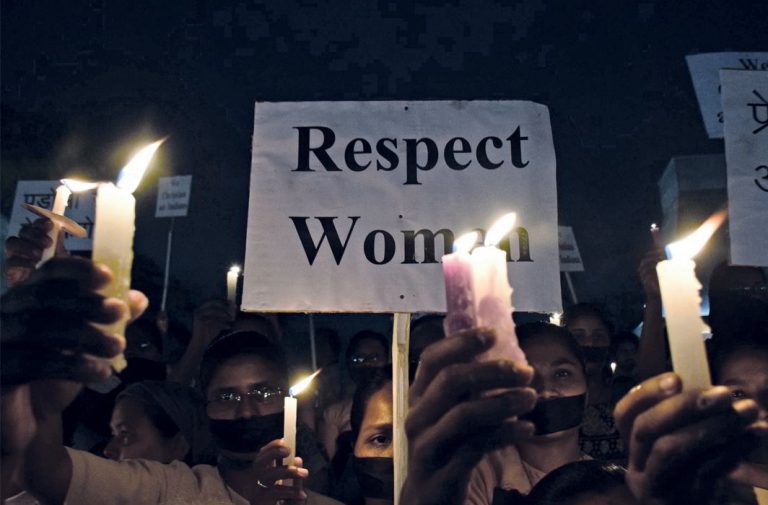
Above: A procession taking place for safety of women. Photo: UNI
A three-judge bench of the Supreme Court comprising CJI Dipak Misra and Justices A M Khanwilkar and D Y Chandrachud agreed on Friday (October 13) to revisit the July 27 ruling delivered by the court in the Rajesh Sharma vs State of UP case.
The court observed that it is not in agreement with the judgment rendered in the Rajesh Sharma case, in which it had laid down safeguards to prevent misuse of Section 498A of the Indian Penal Code. Section 498A punishes cruelty to a wife by a husband and his family members on grounds of dowry.
This observation came in the case of the petition filed by Nyayadhar, a Maharashtra-based NGO, which raised a limited issue – inclusion of women members in the Family Welfare Committee sought to be formed as per the directions in the Rajesh Sharma judgment.
In that judgement, the bench of Justices Adarsh Kumar Goel and Uday U Lalit had restrained the police from arresting an accused in a dowry harassment case till a preliminary inquiry is conducted by a Family Welfare Committee. That bench had held that the Family Welfare Committee should meet the couple concerned and their families before submitting a report to the magistrate. The accused could be arrested only if the report indicated foul play.
Soon after that judgment a group of 16 women’s rights organisations, including Lawyers Collective, Jagori, and All India Women’s Democratic Association had sent a memorandum to the then CJI Jagdish Singh Khehar to review it.
The group had expressed its dismay at the findings in the judgment that women are mainly mendacious and file false cases of domestic violence not only against their husbands but also against all their husbands’ family members.
The memorandum stated that “The judgment is part of a backward trend that we have noticed in earlier judgments also. It completely overlooks the fact that women are daily recipients of harassment for dowry and of domestic violence, which are perpetrated by the husband and by his family, particularly in cases of dowry harassment.”
The Supreme Court appointed senior advocate V Shekhar as amicus in the case and posted it for hearing on November 9.
—India Legal Bureau

